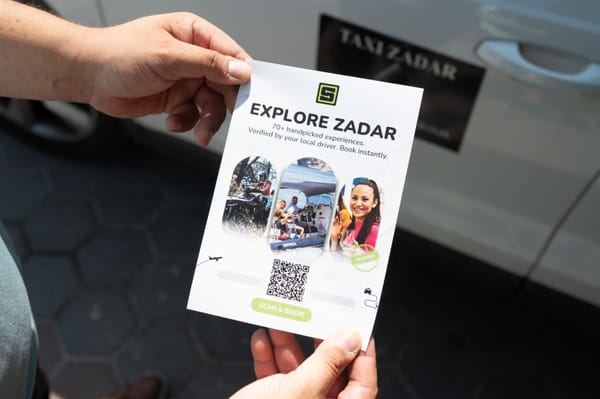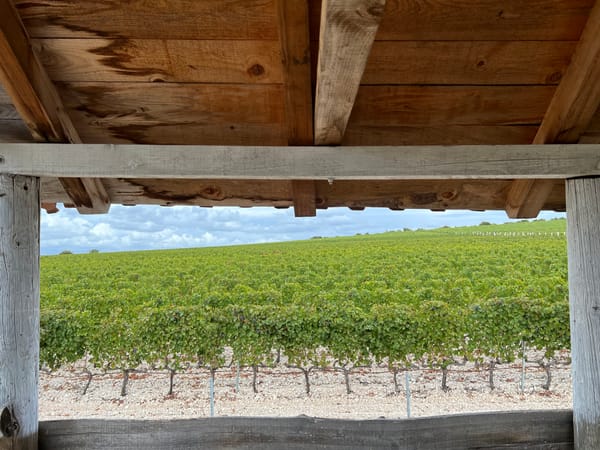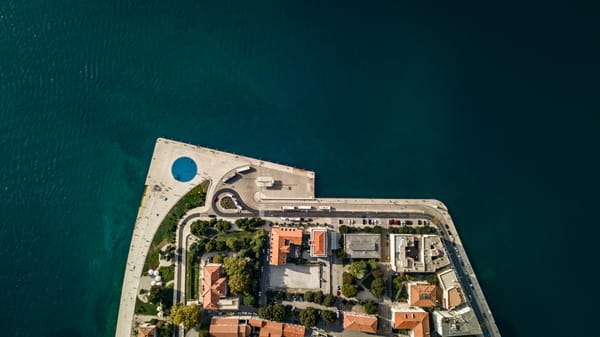The story of young winemakers and wine tasting experiences of Šibenik region, Croatia
While the trend of young, modern and quality winemakers and winegrowers is probably expressed in all Croatian regions, today we bring you a brief overview of a kind of renaissance of winemaking in Šibenik-Knin County.
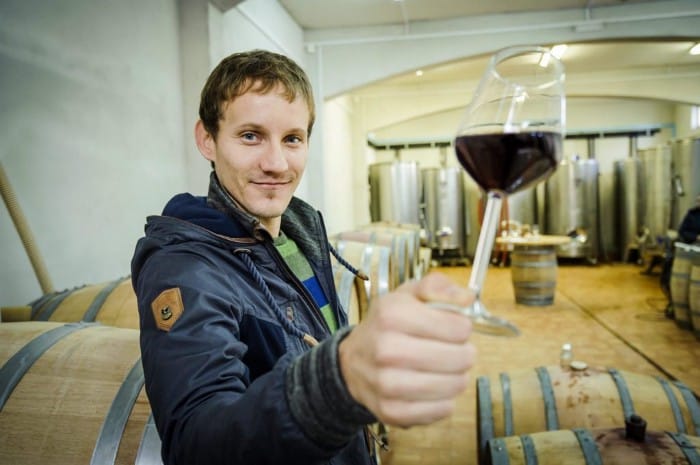
In a very large number of cases, winemaking and viticulture in Croatia represent a family business and tradition, ie a heritage that is passed down between generations. There are many different scenarios, and one of the most common is when parents leave the vineyards or share them with their daughters and sons through joint work. Then, they transfer their knowledge, enthusiasm and effort into modern brands, great wines and completely new understanding of the same by the market.
New knowledge and opportunities open the way for ideas that were planted earlier, at a younger age — to flourish. All the love for wine gathered along the way — through going to the vineyard, monitoring the process of wine production and different tastings, now has an opportunity to become something tangible.
While the trend of young, modern and quality winemakers and winegrowers is probably expressed in all Croatian regions, today we bring you a brief overview of a kind of renaissance of winemaking in Šibenik-Knin County.
They are waking up Dalmatia from a dream
The first one we present is Ante Sladić. His small town Plastovo, not far from the Krka National Park and beautiful Skradin, reveals, as he says, gentle side of Dalmatia. Dalmatia proud of its hinterland, the mystery and poetics it carries. Dalmatia of varieties like Debit and Maraština. Dalmatia of Lasina and Plavina. Dalmatia as a homeland of Tribidrag/Crljenak (known as Zinfandel).
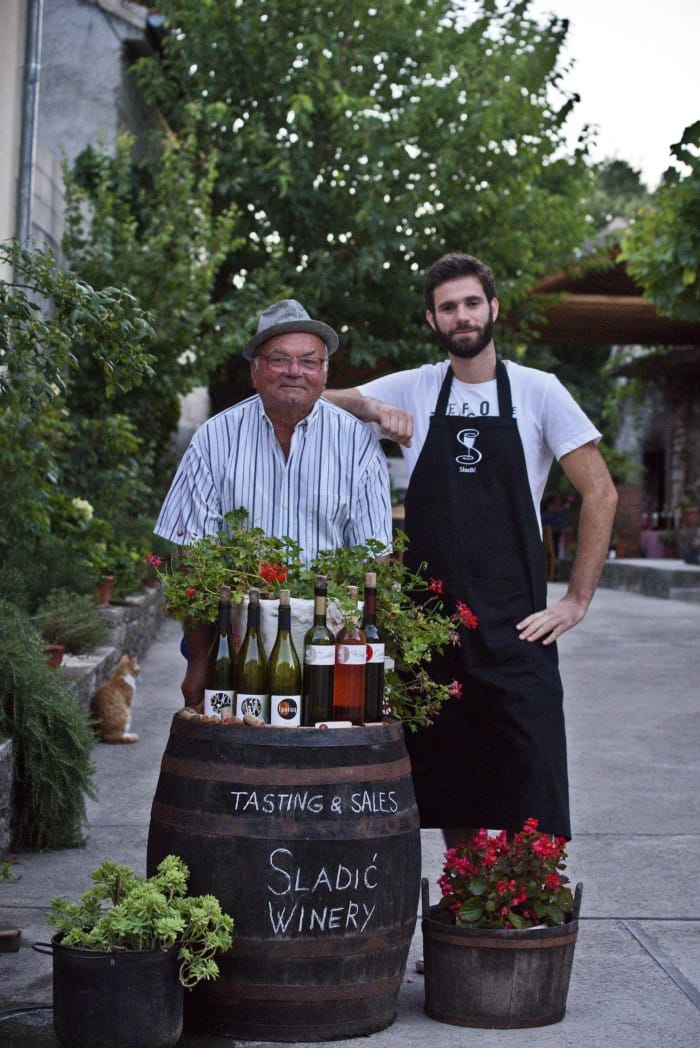
These are the varieties that Ante and his family have nurtured and promoted for generations. Each of them is treated and directed in their own way, creating wines that are already of high quality, as evidenced by recent awards. At the Decanter World Wine Awards in 2020, wines of Ante and his family were decorated with three medals. While Plavina 2017 and Lasina Opol 2019 were crowned with bronze medals, Tribidrag 2015 deserved a silver medal!
The mission of the whole family is to develop a brand of Dalmatian wines of indigenous varieties under the name Ante Sladić Vino, which grow in a specific micro-climate under the influence of the sea and the river, fresh nights and warm days. Dalmatian wines with pronounced freshness, aroma and minerality.
Ante himself believes that Croatian indigenous varieties can be recognized on a global level and that regions such as Northern Dalmatia, can grow into first-class wine regions that tourists will visit on purpose, knowing exactly where they are going to. And you can visit the charming estate of the Sladić family in Plastovo now, where in addition to tasting their wines, you will be able to taste their liqueurs, olive oil and other products and dishes, produced by themselves or in the region — bacon, cheeses, fruits, vegetables and other palate-pleasing magic of Dalmatian cuisine.
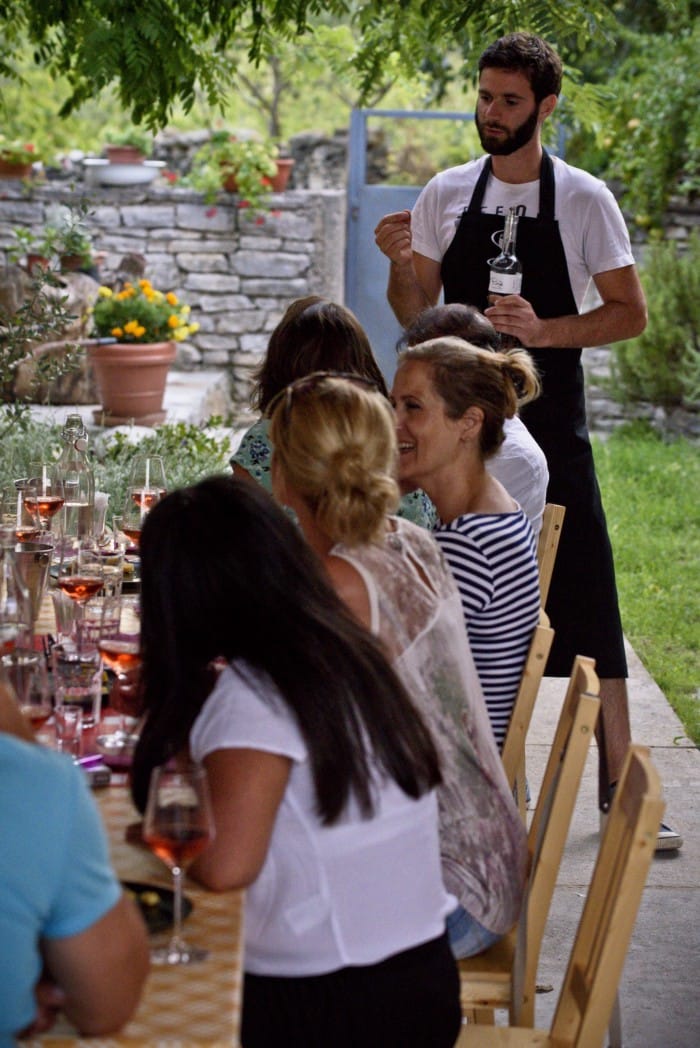
The whole story about this young brand with the old Dalmatian soul is rounded off by the visual identity. Above all, by unique labels that are carefully thought out in collaboration with external experts. They evoke memories of the history of Šibenik region, ancient moments, from both everyday working life and monumental ones. Captured in the song, on the maps and in the reality of Šibenik hinterland and Dalmatia as a region.
Testament = dedication to inheritance
Ante’s brother Juraj had a bit different professional path. Although equally fascinated and passionate about viticulture and winemaking, which has its roots in the family circle, he still does his job as an oenologist a little further from the family estate.
He performs the role of director and chief oenologist of the Testament winery. Winery founded by an investment from the Swedish fund Zhoda Investments, but which quickly embraced the local spirit — by bringing Juraj as the person who will run the winery and create its wines, and by taking over the vineyards in Jadrtovac near Šibenik.
Their varieties are babić and pošip, but what kind of job do they exactly do in Testament? It seems a very, very good one. In 2020, they were the only Dalmatian winery to win two gold medals at the aforementioned prestigious Decanter World Wine Awards. Babić Dalmatian Dog 2016 and Testament Pošip 2019 deserved it. A year earlier, Babić won silver.
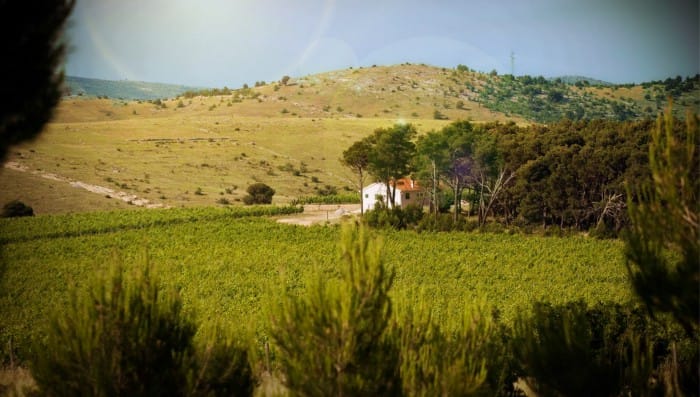
You can taste these wines on their hills Jadrtovac, a beautiful position above the Šibenik coast. We are sure that there will be no lack of notes of expertise and education that have led to the fact that the wines of the Testament winery are of exceptional quality.
One thing is certain in the whole story about them. When several ingredients are properly mixed — the expertise and passion of the person who runs the winery in a visionary and modern way, the capital to drive those things and finally a pinch of tradition on which each brand of wine should rest, the result is extremely positive.
Wine as a creative expression
With its vision and modern approach, Baraka Winery does not lag behind. Filip Karlo Baraka is a kind of mastermind who stands behind the beautiful wines from Srima peninsula, the micro-location between Vodice and Šibenik on one side and the Adriatic Sea and Krka river on the other. It is interesting that for him winemaking is not a primary business, but (for now) a passion and, a bit more serious, hobby.
Although his family company trains sailors all over Dalmatia, Zagreb, and around the world, the second, more romantic family story began in 2004. At that time, Filip’s father bought the land for planting vineyards, and everything else was, so to speak, history.
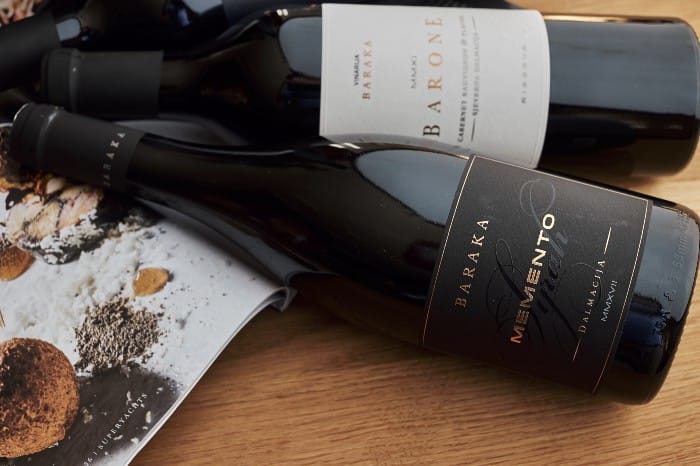
Although there has always been wine at Baraka’s place, for personal needs and the needs of friends (because wine is a need, that is the basic postulate of winemaking, isn’t it?), it was only with the planting of vineyards that some more serious things started. Which meant that until then, Filip hadn’t had significant mentoring that could direct him more seriously in wine production.
A few years, planted varieties of grapes, lavender and immortelle later, thewinery can be proud of more than a few serious wine labels. Labels that Filip made himself and each of which has its own meaning and symbolism and is dedicated to a specific event, phenomenon or locality — family, Šibenik region and much wider.
Prisbus, Mocira, Barone, Memento… These and some other symbolic names adorn the bottles of red wines in which Cabernet Sauvignon, Merlot, Plavina, Babić and Syrah intertwine and wait for the first sip of some wine lover. They are the embodiment of the Latin saying Nomen est omen. The name is a sign.
At the same time, white wines have simple names because they probably don’t even need some new ones. When it comes to Croatian varieties — Debit is Debit and Maraština is Maraština. Authentic enough and gems of Northern Dalmatia. And because of that, this is a very good move by Baraka Winery.
They treat each of these wines separately with each new vintage, while trying to innovate at the same time. It is a reflection of love for terroir and tradition, and can be felt in their tasting room — where you can try wines in several variations of the experience, and where from time to time interesting events are held to promote oenology and gastronomy of Šibenik-Knin County and Dalmatia.
Following the ancestors’ path — professionally and with respect
The story of Birin Winery from Vodice is also interesting. Although this family has been dealing with Mediterranean agricultural crops for decades, their breakthrough into a market full of freshness and youthful rise has taken place from 2010 onwards.
Then Nikola took over the baton in wine production from his father Grga. After graduating from the Faculty of Agriculture, majoring in viticulture and winemaking, he returned to Vodice and began to further develop the family business.
In doing so, he raised the quality to a higher level, implemented the knowledge from the faculty and everything he picked through practice and lectures from those more experienced than himself, and also contributed to increasing the amount of wine produced.
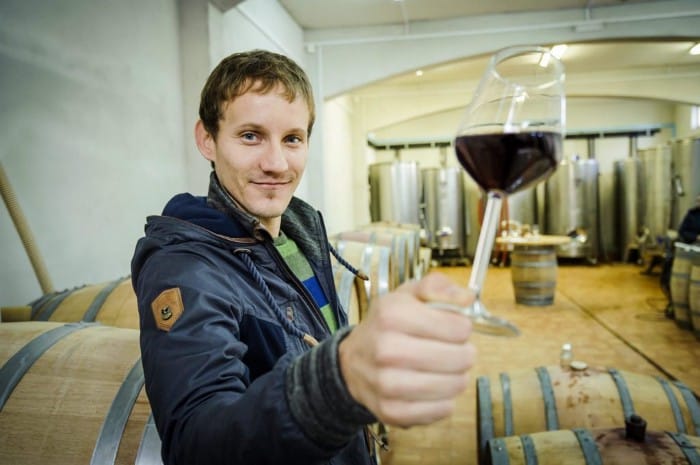
Of course, for both Nikola and his family, traditional Dalmatian varieties are inevitable and represent a reflection of love for their homeland and the karst this varieties are born from. Debit, Maraština, Plavina, Lasina and Babić grow in their long-planted vineyards and are constantly finding their way to restaurants throughout Croatia.
But we will not lie if we say that it is certainly a special pleasure to try Birin wines in their homeland. More precisely, in the new tasting room in which the Birin family invested and which today, like all the tasting rooms of the wineries mentioned earlier, is reminiscent of a special Dalmatia. Long planted in Dalmatians, mythical and charming. And which lives and will live as long as wine is dear to our heart — through vineyards, wines and winemakers.
Unveiling the Rich Wine Heritage of Šibenik
In addition to the success of young winemakers revitalizing Šibenik's wine scene, the region offers a rich and diverse array of wine experiences for all tastes. The unique Dalmatian climate and centuries-old viticultural traditions provide the perfect setting for exploring some of the most charming wineries in the area.
Start your journey at Winery Rak in the picturesque Dubrava near Šibenik. This family-run estate, with a history dating back to 1960, offers exclusive wine tours featuring tastings of local varieties like Babić and Maraština. Visitors can explore both modern and traditional winemaking processes, reflecting the family's dedication to quality. The experience is enhanced by a traditional platter or meal paired with their wines.
Another exceptional destination is Wine Garden Skradin, a serene retreat in the heart of Skradin. This Mediterranean-style garden invites visitors to relax and enjoy five homemade wines while listening to the owner's stories. The visit includes a stroll to the nearby Turin Fortress, offering panoramic views of Skradin.
Whether you are a seasoned wine connoisseur or just starting out, the diverse offerings in Šibenik and its surroundings promise a memorable and enriching experience. From passionate young winemakers to established wineries, there is something for everyone to discover and enjoy in this beautiful part of Dalmatia.


